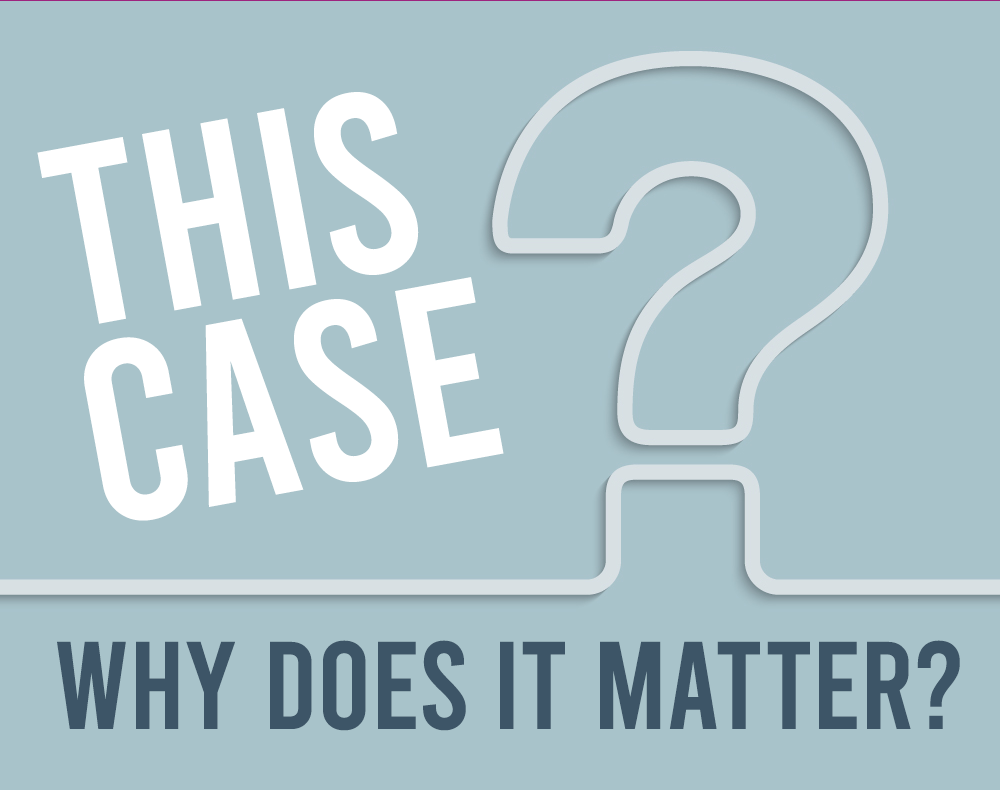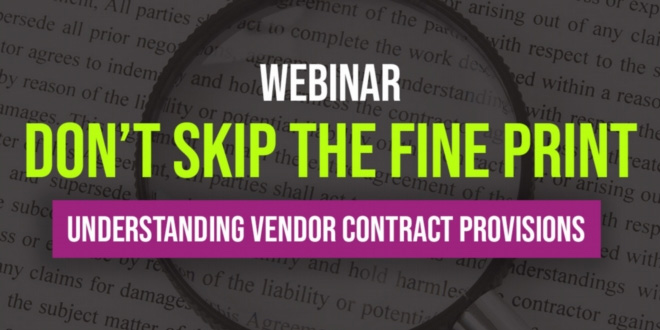This edition of Becker’s Community Update highlights why adding a “primary occupant” designation in your association’s governing documents may be a good idea and whether your entrance gates are opening you up to increased liability. Check out these topics and more, and don’t forget to connect with us on Facebook to get real time updates on these issues and others!
Our featured article, “Designation of Primary Occupant,” discusses how associations can ensure their screening process isn’t circumvented.
When a community has an entrance gate, it is almost inevitable that the association will at some point deal with the issue of whether it is responsible for damage to a vehicle which occurred when someone was entering or exiting the gate. Find out more in, “Is Your HOA Gate Opening to Increased Liability?”
Guest Columnist, Gary Schaaf, answers your real estate FAQs in, “Property Damage and Falls: When Things Go Wrong.”
Lastly, what happens to unpaid assessments owed to the association when a first mortgagee forecloses is the subject of this month’s“THIS CASE: Coral Lakes Community Association, Inc. v. Busey Bank, N.A.”
Mark D. Friedman, Esq. & Jay Roberts, Esq., Editors
-
 Designation of Primary Occupant
Designation of Primary OccupantMany condominium governing documents require new residents to go through a screening process. Section 718.104(5) of the Florida Condominium Act provides that “[t]he declaration as originally recorded or as amended under the procedures provided therein may include covenants and restrictions …
Continue Reading →
Is Your HOA Gate Opening to Increased Liability?
When a community has an entrance gate, it is almost inevitable that the association will at some point deal with the issue of whether it is responsible for damage to a vehicle which occurred when someone was entering or exiting the gate. The primary question to resolve in assessing liability in such a circumstance is determining the cause…
Property Damage and Falls: When Things Go Wrong
As all real estate professionals know, it’s difficult to predict what bumps in the road may arise while a property is being marketed for sale. Even in the seemingly benign scenario of a vacant residential or commercial property, someone – be it a potential buyer, an agent, a vendor, a landscaper, or anyone else who may find themselves…

Coral Lakes Community Association, Inc. v. Busey Bank, N.A.
30 So.3d. 579 (Fla. 2d DCA 2010)
What happens to unpaid assessments owed to the association when a first mortgagee forecloses is the subject of Coral Lakes Community Association, Inc. v. Busey Bank, N.A., 30 So.3d. 579 (Fla. 2d DCA 2010). Many of you may have heard of the “safe harbor” provision found in section 720.3085(2)(c), Florida Statutes. That statutory provision states:
Notwithstanding anything to the contrary contained in this section, the liability of a first mortgagee, or its successor or assignee as a subsequent holder of the first mortgage who acquires title to a parcel by foreclosure or by deed in lieu of foreclosure for the unpaid assessments that became due before the mortgagee’s acquisition of title, shall be the lesser of:
1. The parcel’s unpaid common expenses and regular periodic or special assessments that accrued or came due during the 12 months immediately preceding the acquisition of title and for which payment in full has not been received by the association; or
2. One percent of the original mortgage debt.
The limitations on first mortgagee liability provided by this paragraph apply only if the first mortgagee filed suit against the parcel owner and initially joined the association as a defendant in the mortgagee foreclosure action. Joinder of the association is not required if, on the date the complaint is filed, the association was dissolved or did not maintain an office or agent for service of process at a location that was known to or reasonably discoverable by the mortgagee.
It would be wonderful if the foregoing applied in all situations, but as if often the case, the law is not that simple. The foregoing statutory language was adopted by the Florida Legislature in 2008. However, because the Florida Constitution prevents the legislature from adopting a statute that impairs existing contract rights (except in limited circumstances), there are some instances where a homeowners’ association cannot absolutely rely on this statutory recovery for unpaid assessments following the foreclosure of a first mortgage. This is what occurred in the Coral Lakes case.
The Coral Lakes declaration of covenants and restrictions stated:
The Coral Lakes court found that (1) the language in the declaration of covenants and restrictions predated the enactment of section 720.3085(2)(c), Florida Statutes; and (2) the foreclosing first mortgagee was an intended third-party beneficiary of this language in the declaration of covenants and restrictions, and because of the foregoing, the court held that the language in the declaration of covenants and restrictions controlled over the later-enacted statute. The homeowners’ association lost the appeal and was denied payment of any back assessments based on the language in the declaration of covenants and restrictions, which excused a foreclosing first mortgagee from assessment liability.
So why does THIS CASE matter? Associations cannot be ignorant to the impact that language in their governing documents can have on a dispute, regardless of what a statute states. The Coral Lakes court discussed that the homeowners’ association involved in the dispute could have drafted the subordination clause in a manner which better protected it from the impact of the foreclosing first mortgagee. If you are in a homeowners’ association that predates the enactment of section 720.3085, Florida Statutes, and you have not amended the assessment subordination clause, you should discuss this problem with your association attorney. Failure to take action to amend out arcane language can result in expensive lessons.
Question of the Month
Q: Can a candidate be nominated from the floor of the meeting for a condominium election?
Condominium Association Elections – The Who, What, When, & Where
FCAP Manager’s Report
Your condominium association elections for your Board of Directors are governed by the Florida Condominium Act (Chapter 718 of the Florida Statutes), and Rule 61B-23.0021 of the Florida Administrative Code. Your association governing documents may also contain requirements for your election. Generally, these requirements are contained in the association’s By-Laws. With this in mind, there a number of key deadlines and procedures that the association must follow to have a valid election.
Homeowners Association Confusion & Frequently Asked Questions
FLCAJ Magazine
By: Lilliana M. Farinas-Sabogal, Esq.
Although the term community association encompasses different types of community associations, in Florida, the two predominant forms of community associations are homeowners associations and condominium associations. There are vast differences but also numerous similarities between the two. Unfortunately, this can cause confusion when owners, directors, and/or managers assume the two are the same. Simply put, they are not.
There are two entirely different chapters in the Florida Statutes that govern these communities. The Florida Condominium Act, Chapter 718 of the Florida Statutes, governs condominiums in the state. The Florida Homeowners’ Association Act, Chapter 720 of the Florida Statutes, governs homeowners associations in the state. Knowing which applies to a community is paramount.
Statewide Suspension of Community Association Classes
Becker has been closely monitoring the latest coronavirus (COVID-19) developments. In the continued interest of the health and safety of our clients and colleagues, we have made a decision to continue the suspension of all Community Association classes until further notice.
As always, we will keep you informed of any changes and updates.
CALLING ALL BOARD MEMBERS AND COMMUNITY MANAGERS
As a service to the community and industry, we are pleased to offer some of our most popular classes online! While our in-person classes remain suspended until further notice due to COVID-19, we are thrilled to bring you the following classes to participate in from the comfort of your own home.
- HOA/Condo Board Member Certification
- Disaster Preparedness and Recovery
- Anatomy of a Water Leak
- Understanding Our Bylaws
- How to Properly Run an Election
- Budgeting & Reserves
- Covering Your Assets: How to Avoid Board Member Liability
- Collection and Foreclosure Strategies for Community Associations
- Dealing with Difficult People
- Construction Projects Gone Wild
- 2021 Legal Update
- Take a Bite out of Fraudulent Assistance Animal Requests
More Information Coming Soon!
- 5/13/2021 – HOA/Condo Board Member Certification – Jane Cornett – CenterState Bank
- 5/20/2021 – HOA/Condo Board Member Certification – Robert Caves, Maritrini Soto Garcia, Katie Berkey
Omnibus Bill (SB 630) Brings Changes for Florida Condos, Cooperatives and HOAs
This year’s large community association omnibus bill will likely become law. This bill, which bears an effective date of July 1, 2021, contains changes which will impact condominiums, cooperatives and HOAs. At more than 100 pages, we discuss only some of those changes. This bill, along with all the others CALL has been tracking throughout the 2021 Legislative Session, will be summarized in our year-end Legislative Guidebook.
RECENT WEBINARS
Don’t Skip the Fine Print: Understanding Vendor Contract Provisions
Has a prospective vendor presented your association with a standard one-size-fits all contract? Before signing on the dotted line, watch the webinar replay for a discussion dedicated to successfully navigating the boilerplate provisions of a commercial contract. We’ll discuss the importance of key contract clauses, why you should think twice before signing a vendor’s typical agreement, and what your options are for addressing provisions either through a new contract or via addendum.
Donna DiMaggio Berger Appears in Season 2 Episode 14 of the Castle Group’s COVID-19 Webinar Series
Becker Community Association Shareholder Donna DiMaggio Berger participated in episode 14 of the second season of Castle Group’s COVID-19 webinar series. She was joined by Castle Group’s Founder and CEO James Donnelly to discuss the impact of both the recent COVID-19 liability legislation and the 100+ page omnibus bill.








![look-[Converted]](https://www.floridacondohoalawblog.com/wp-content/uploads/2020/04/look-Converted.png)




